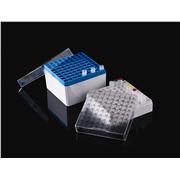What type of mortar is best for stonework? What are the different types of mortar? Each type is mixed with a different ratio of cement, lime, and sand to produce specific performance characteristics such as flexibility, bonding properties, and compressive strength.
Other articles from thebalancesmb. Gauged mortar is a type of mortar where cement and lime both are used as binding material and sand is used as fine aggregate. Basically, it is a lime mortar where cement is added to gain higher strength.
The process is known as gauging. There are specific types of mortar available. Each mortar type has its own uses and works best with only certain types of materials. This type of mortar is long lasting and will continue to hold its strength for as long as the stone remains.
Type S mortar is specified as a medium strength mortar and is generally used for below grade exterior walls. Below grade in this case means below the. Mortar -Mud-Mixes Used in all types of masonry work, including brick , block and stone laying and repairs, such as tuckpointing, Mortar is available in a variety of types for a variety of applications. In conjunction with hard stone or other masonry units that have a high compressive strength. Mortar is made up of varying amounts of hydrated lime, Portland cement, and sand combined to create a mix that meets a certain requirement.
Each type is classified by it’s bonding properties, flexibility, and compressive strength. So how do you choose the right mortar type for your project? Spigot mortars , a particular type of mortar, consist mainly of a solid rod or spigot, onto which a hollow tube in the projectile fits—inverting the normal tube-mortar arrangement. At the top of the tube in the projectile, a cavity contains propellant, such as cordite.

Mortar is also available as thin-set, a cement-based product that works well with level, flat surfaces. Rapid-set mortar sets (hardens) very fast and is best left to the pros. Always read the product specifications to confirm which surfaces and substrates you can apply mortar to, what temperature is recommended for the work and what type of trowel is required. Type N mortar mix is a medium-strength mortar (7psi) recommended for exterior and above-grade walls and interior load-bearing walls. Type N mortar withstands high heat, low temperatures, and severe weather and is considered to be.
The Five Most Commonly Used Mortar Types. Mortar mixes are classified according to a few key properties which include compressive strength, bonding strength and flexibility. Each mortar mix has a specific Portland cement, hydrated lime and sand proportion that makes each type of mortar mix different from the others. Strengths of mortar change based on the mix ratio for each type of mortar , which are specified under the ASTM standards. When water is added to the dry mixture of binding material and the inert material, binding material develops the property that binds not only the inert material but also the surrounding stones and bricks.

Type O is the next most common mortar type that sees use almost exclusively indoors. Type M mortar mimics the strength of stone. This is because type O mortar , after drying, is noticeably weaker than the basic type N. Sir Mix Concrete Type S Mortar 94-lb Gray Type - S Mortar Mix. Five mortar types , each with a corresponding recommended mix, have been established by ASTM to distinguish high strength mortar from soft flexible mortars.
Choosing the right tile mortar can be a lot simpler than you might think. In most cases, the tile application—where the tile is installed—clearly determines the best mortar option. And sometimes the type of tile itself is a determining factor. Refresh your kitchen today.
Get Mortar delivered to your door. Ready for dinner tonight. Try Drive Up, Pick Up, or Same Day Delivery.
No comments:
Post a Comment
Note: only a member of this blog may post a comment.